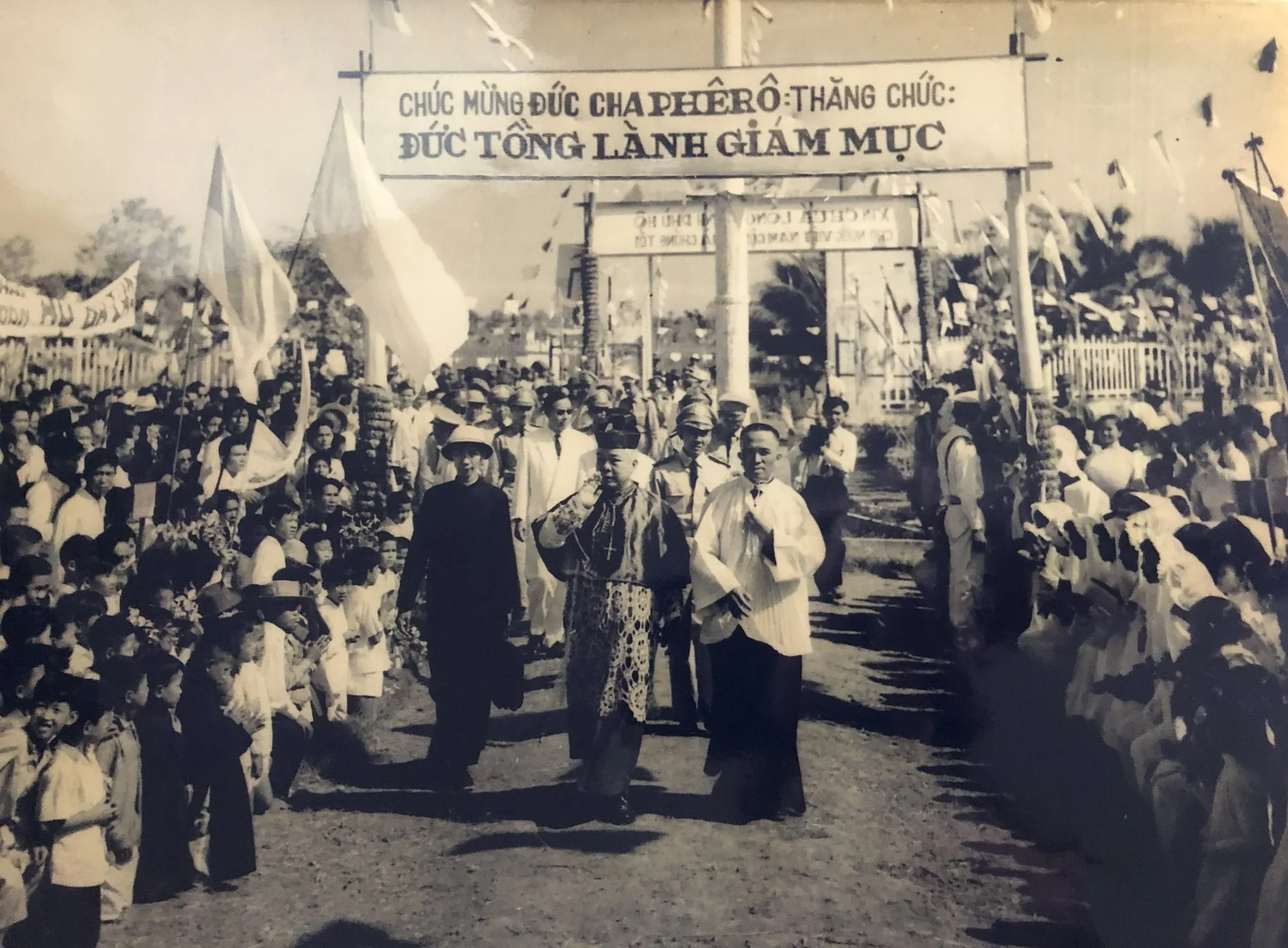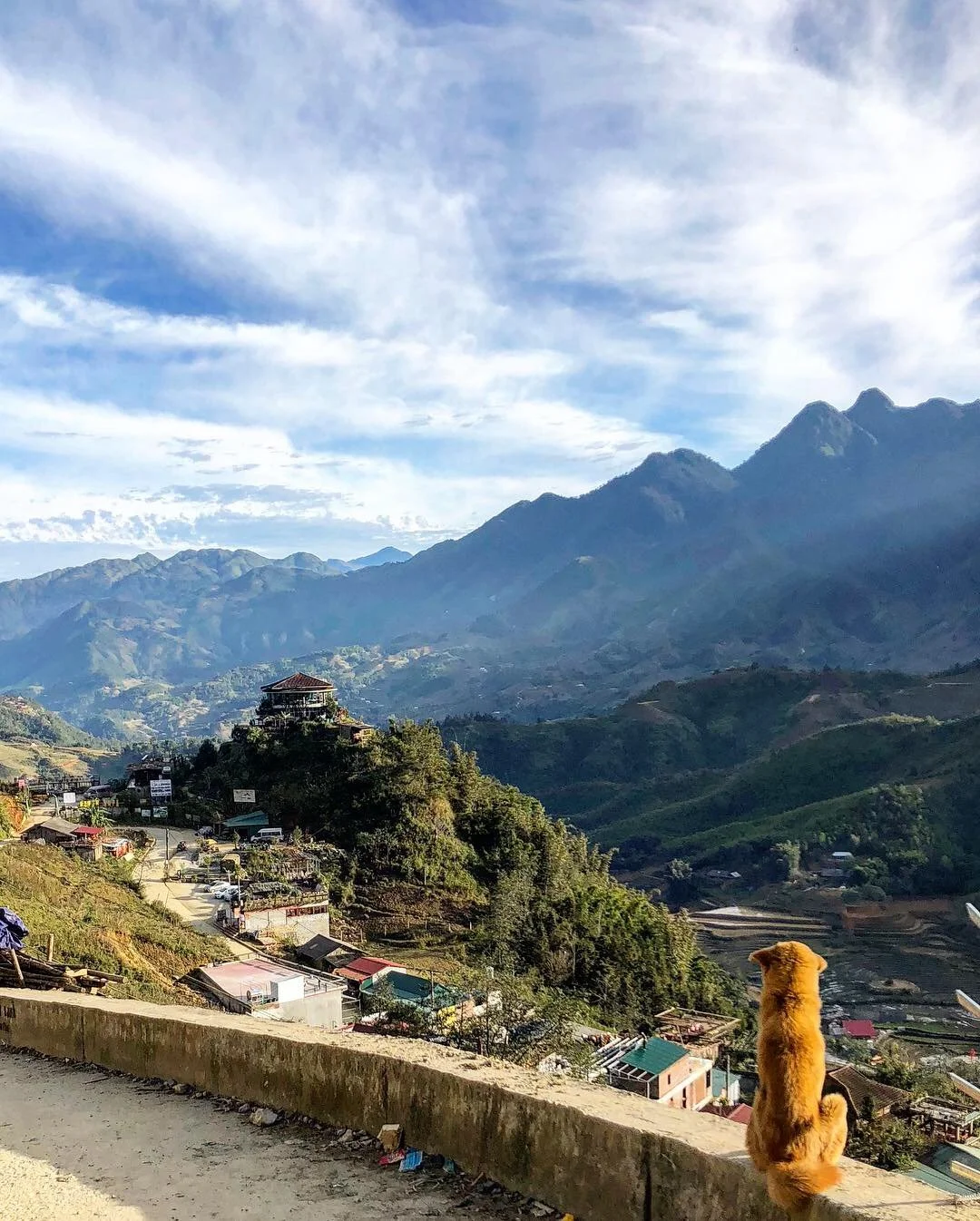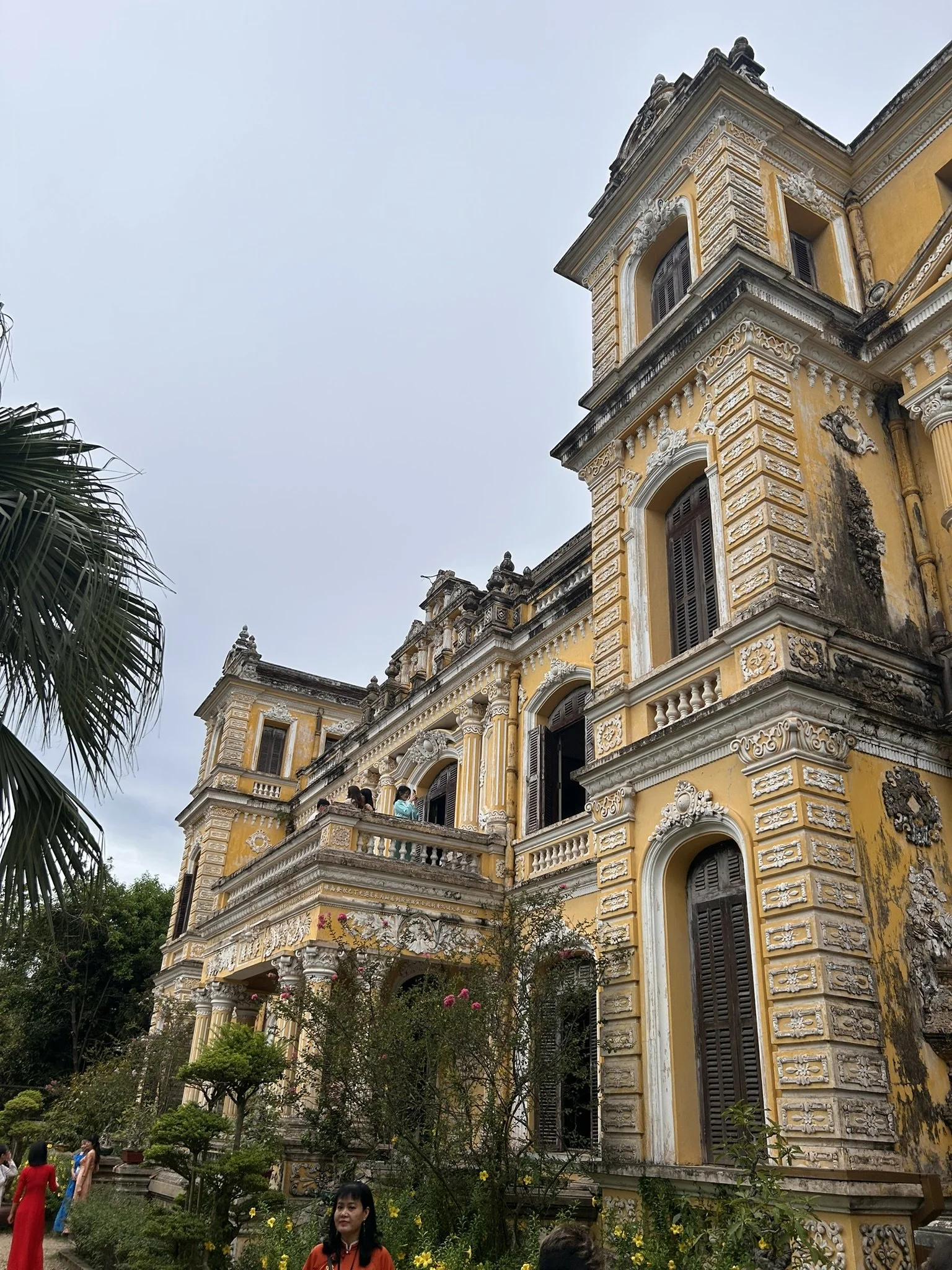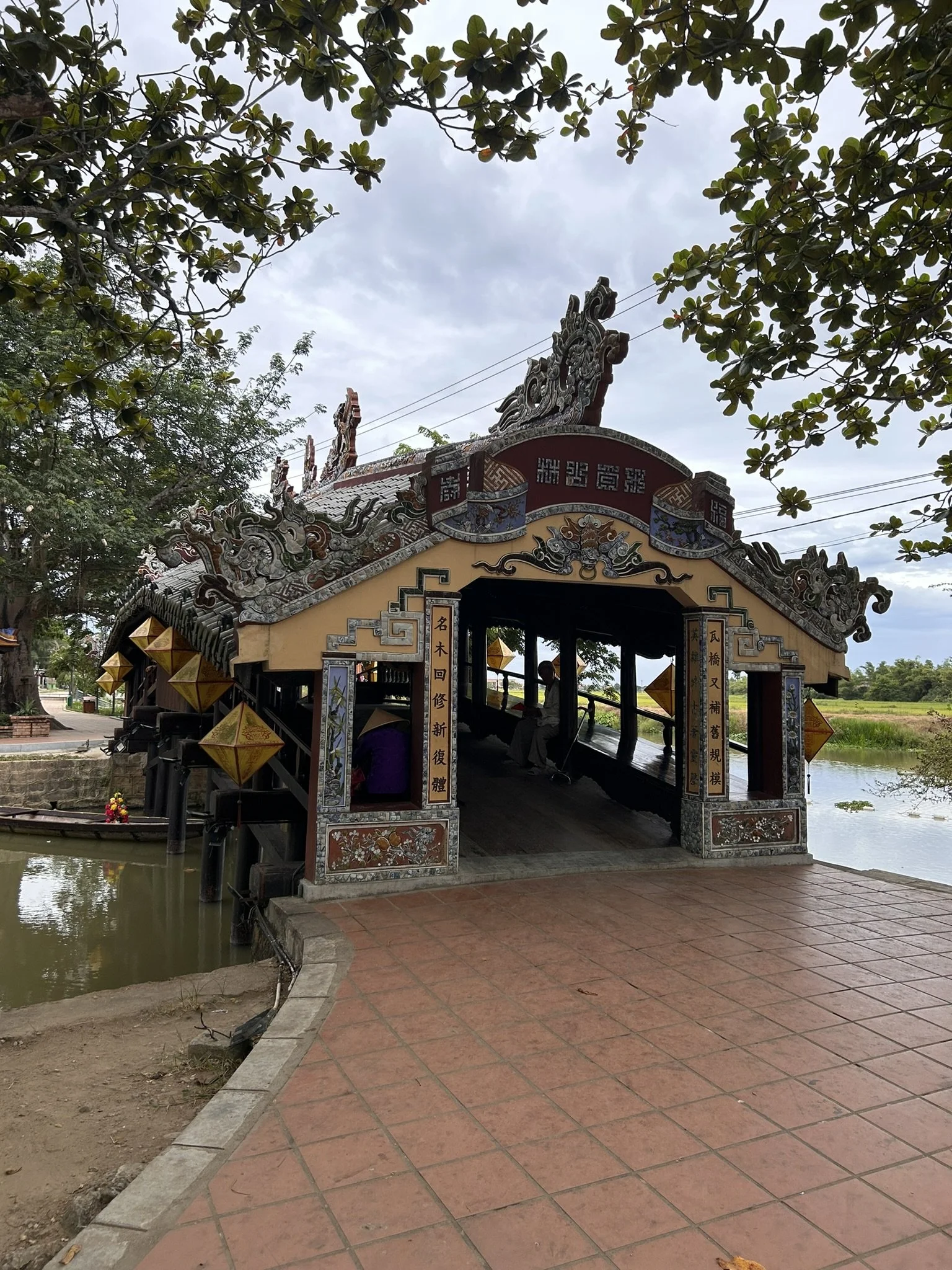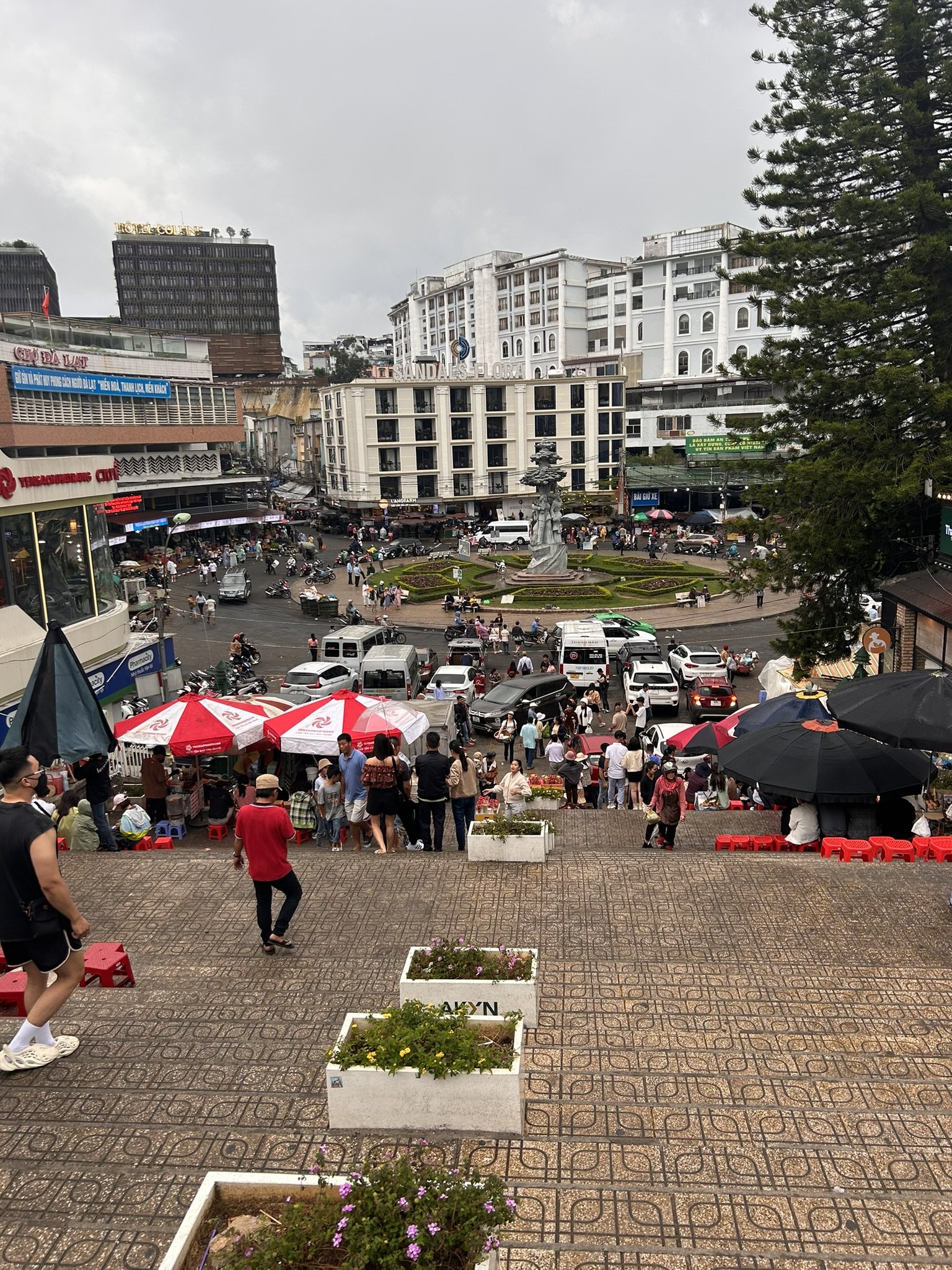ABOUT ME
Pierre (left), me (middle), and Alec (right) at my wedding in September 2022 in Illionis.
I am a historian specializing in the Vietnam War and the Global Cold War. Currently, I am a doctoral candidate at Ohio University (2020–), where I work under the supervision of Dr. Alec Holcombe, a leading scholar of the Democratic Republic of Vietnam. My studies with Alec have focused on modern Vietnamese history and also include broader explorations of Southeast Asia and the history of global communism. In addition to Alec’s mentorship, my coursework has benefitted from the expertise of Dr. Steven Miner, a specialist in the Soviet Union during the Second World War; Dr. Ingo Trauschweizer, a historian of the United States military during the Cold War; and Dr. Joshua Hill, an expert in modern Chinese history. Each of these scholars has been incredibly supportive and influential in shaping my understanding of the Global Cold War.
Prior to attending Ohio University, I earned my Master of Arts degree at San Diego State University (SDSU), where I was mentored by Dr. Pierre Asselin, a leading historian of the Vietnam War and the Cold War. It was through Pierre’s dynamic graduate seminars that I developed a fascination with the history of the Vietnam War. His encouragement was instrumental in shaping my academic path. We really bonded at our program’s “Beer with History” social events. My studies at SDSU also included work with Dr. Gregory Daddis, a renowned American military historian of the Vietnam War, who served on my thesis committee. My time at SDSU was rewarding both professionally and personally. During my graduate seminars, I got to know one of my classmates, Katie, who later became my best friend and wife.
While many doctoral students benefit from the mentorship of a single advisor, I have been fortunate to work with two distinguished scholars in the fields of Vietnamese and Cold War history. Both Dr. Holcombe and Dr. Asselin have enriched my scholarship, offering invaluable perspectives that have shaped my understanding of Vietnam’s role in the broader context of the Cold War.
Language Learning
I have a passion for learning languages and have taken extensive coursework in Vietnamese, Chinese, and French. I began studying Vietnamese at the University of Social Sciences and Humanities (USSH, Trường Đại học Khoa học Xã hội và Nhân văn) in Hanoi and later completed Advanced Vietnamese II at the Southeast Asian Studies Summer Institute (SEASSI). I continue to take online Vietnamese lessons with my teacher from USSH. For Chinese, I studied at San Diego State University, the Chinese Language Workshop at Indiana University, and at Ohio University, completing Advanced Chinese II and a special studies course. I also studied online at the Chinese Language Institute (CLI, 桂林汉语研修学院), which is located at Guangxi Normal University in Guilin, China. I also completed Intermediate French I at Ohio University and additional classes online with a tutor from the website Italki. These language skills facilitate my archival research in Vietnam, France, and in the future, China.
Living in Hà Nội (2018-2019)
In June 2018, I moved to Hanoi thanks to the generous support and aid of my Master’s advisor, mentor, and friend, Pierre Asselin, a leading historian of the Vietnam War. He had been telling me that the only way to “get” Vietnamese history and the history of the Vietnam War was to spend extensive time living in the country and to learn the language. He wanted me to become an area specialist. In this spirit, I moved to Hanoi and lived with an incredible scholar and his lovely family. While in Hanoi, I took one-on-one language courses with a teacher from the University of Social Sciences and Humanities (USSH, Trường Đại học Khoa học Xã hội và Nhân văn). This was the most formative period of my academic career.














2022 & 2023 Trips to Việt Nam
Over two summers in 2022 and 2023, I spent six months conducting archival research in Sài Gòn, Đà Lạt, Hà Nội, and Huế, while visiting National Archives Centers II, III, and IV. This research provided access to critical documents from the French colonial period and the Republic of Vietnam. During these trips, I also familiarized myself with the regions of the Central Highlands, Central Vietnam, and Southern Vietnam, enhancing my understanding of these areas, in addition to my prior familiarity with Hà Nội and Northern Vietnam.
An Định Palace, located in Huế, Vietnam, was first the residence of Prince Nguyễn Phúc Vĩnh Thụy, who was later anointed as Emperor Bảo Đại, the last emperor of Vietnam. An Định Palace then became the home of his mother, Dowager Empress Từ Cung, after his ascension to the throne. Built in the early 20th century, this elegant structure blends French colonial and traditional Vietnamese architectural styles, offering a glimpse into the opulence and artistic heritage of Vietnam's last imperial dynasty.
